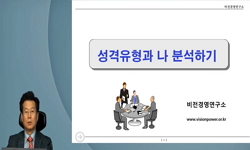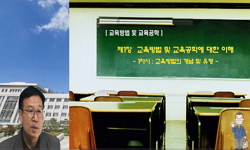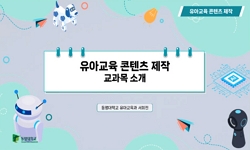본 연구는 부산시청자미디어센터(이하 미디어센터)의 미디어교육에 참여한 청소년들을 대상으로 미디어체험 프로그램(뉴스/라디오/토론/드라마)의 유형과 청소년의 성격유형(외/내향/사고/...
http://chineseinput.net/에서 pinyin(병음)방식으로 중국어를 변환할 수 있습니다.
변환된 중국어를 복사하여 사용하시면 됩니다.
- 中文 을 입력하시려면 zhongwen을 입력하시고 space를누르시면됩니다.
- 北京 을 입력하시려면 beijing을 입력하시고 space를 누르시면 됩니다.
https://www.riss.kr/link?id=A99544884
- 저자
- 발행기관
- 학술지명
- 권호사항
-
발행연도
2012
-
작성언어
Korean
-
주제어
미디어교육 ; 미디어체험 ; 미디어제작 ; 미디어능력 ; 성격유형 ; 시청자미디어센터 ; 바아케 ; media education ; media experience ; media ability ; media production ; personality type ; community media center ; Baake
-
등재정보
KCI등재후보
-
자료형태
학술저널
-
수록면
95-127(33쪽)
- 제공처
-
0
상세조회 -
0
다운로드
부가정보
국문 초록 (Abstract)
본 연구는 부산시청자미디어센터(이하 미디어센터)의 미디어교육에 참여한 청소년들을 대상으로 미디어체험 프로그램(뉴스/라디오/토론/드라마)의 유형과 청소년의 성격유형(외/내향/사고/감정)에 따른 미디어능력 향상의 차이를 실증적으로 검토해보았다. 이를 위해 바아케(Baacke,1997)의 미디어능력 개념인 지각/지식, 비판/비평, 이용/상호작용, 제작/구성능력 등을 차용하여 각 능력에 미치는 효과의 차이를 알아보았다.
연구결과는 다음과 같이 요약할 수 있다. 첫째, 청소년의 외/내향성에 따른 미디어교육효과는 내향성 청소년이 외향성 청소년에 비해 미디어 교육 후의 미디어능력(지각/지식, 비판/비평, 이용/상호작용, 제작/구성능력)이 더 크게 향상되는 것으로 나타났다. 평소 수동적이고 자발적이지 못한 내향성 청소년들이 미디어체험을 통해 자신의 잠재력을 표출할 수 있는 기회를 가짐으로서 나타난 결과로 생각된다. 둘째, 청소년의 사고/감정성에 따라서는 교육 전에는 감정형의 미디어능력이 더 높게 나타났으나, 교육 후에는 오히려 사고형 청소년들의 비판비평능력과 제작능력이 더욱 향상된 것으로 나타났다. 이러한 결과는 미디어교육을 통해 감성적 측면이 다소 부족한 사고형의 청소년들에게 친구들과의 상호관계 속에서 미디어에 대한 보다 조화로운 사고를 할 수 있는 기회를 제공한 것으로 보인다.
셋째, 체험 프로그램 유형에 따른 미디어능력에서는 라디오프로그램에서 가장 높은 미디어교육 효과가 나타났다. 이는 라디오 프로그램은 타 프로그램과는 달리 시사, 정보, 연예, 고민상담, 청취자 가상 연결 등 프로그램 구성에 있어 제한된 포맷이 없으므로, 라디오 프로그램의 수강만으로도 다양한 프로그램 장르의 제작형식을 체험해볼 수 있다는 점이 크게 작용한 것으로 예상된다.
본 연구를 통해 체험 프로그램의 유형과 수용자의 성격유형에 따른 차별적인 교육효과를 확인할 수 있었다. 이러한 결과는 지금까지는 미디어교육이 획일적이고 일괄적으로 운영되었다면, 향후 미디어교육은 세분화된 수용자의 특성을 고려한 맞춤형 미디어교육 프로그램과 교육방식의 개발이 이루어져야함을 시사한다.
다국어 초록 (Multilingual Abstract)
This study is about how teenager’s personalities(Extrovert, Introvert, Thinking, Emotional) are related on improving their media ability when participating the media experience program (News/ Radio / Discussion/ Drama) done in the Busan community ce...
This study is about how teenager’s personalities(Extrovert, Introvert, Thinking, Emotional) are related on improving their media ability when participating the media experience program (News/ Radio / Discussion/ Drama) done in the Busan community center.
To do so Baake(1997) media ability concept(perception/ knowledge, critique/criticism, use/ Interaction, configuration/ capability)much higher than the teenagers with extroverted personality.
The summary of the result is as follow. First, on the teenagers with introverted personality had improved their media ability(perception/ knowledge, critique/criticism, use/ Interaction, configuration/capability) much higher than the teenagers with extroverted personality. This is thought to be caused due to introverted teenagers having the chance to express their potentiality through media experience.
Second, prior to the training emotional teenagers had higher media ability, but after the training teenagers with thinking ability had the higher media ability on critique/ criticism, and creation areas. Thinking teenagers who may be little lack of emotion have the chance to get more emotional through interaction among the others which gives them higher possibility to do harmonious thinking.
Third, the radio program had the highest media program effect in the experience program. This is because, unlike other programs radio doesn’t have the restrict format and could give the experience on all kinds of production ways just by taking the training like virtual connection, current affairs, information, entertainment, counseling and etc.
The study have especially focused in the personal characteristic. If the media training has been done in a standardized way, through the study we can conclude to develop media programs considering the trainee character so we can give customized trainings.
목차 (Table of Contents)
- I. 문제제기 및 연구목적
- Ⅱ. 선행연구 검토
- Ⅲ. 연구문제 및 방법
- Ⅳ. 연구결과
- V. 결과 및 논의
- I. 문제제기 및 연구목적
- Ⅱ. 선행연구 검토
- Ⅲ. 연구문제 및 방법
- Ⅳ. 연구결과
- V. 결과 및 논의
- 참고문헌
- Abstract
동일학술지(권/호) 다른 논문
-
범죄프로파일링(Criminal Profiling)에 관한 실증적 연구
- 강원대학교 사회과학연구원
- 김영오(Kim, Young Oh)
- 2012
- KCI등재후보
-
Exploring Inter-organizational Partnership Development
- 강원대학교 사회과학연구원
- Hyung-Woo Lee(이형우)
- 2012
- KCI등재후보
-
- 강원대학교 사회과학연구원
- 정철현(Jeong, Cheol Hyun)
- 2012
- KCI등재후보
-
- 강원대학교 사회과학연구원
- 문윤수(Moon, Yun Su)
- 2012
- KCI등재후보





 DBpia
DBpia






